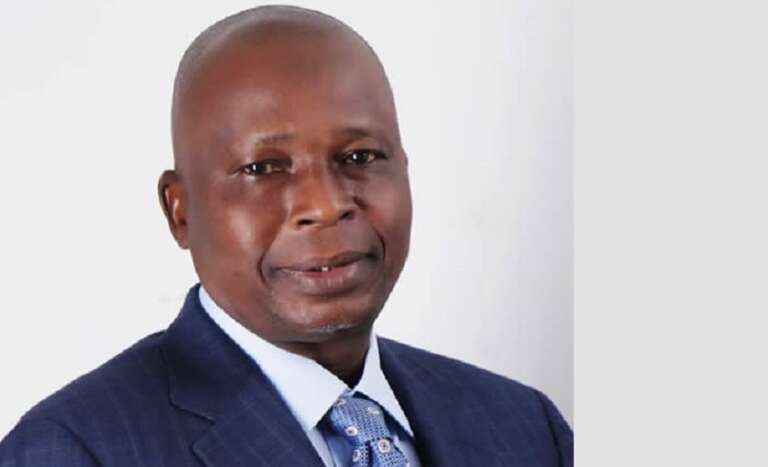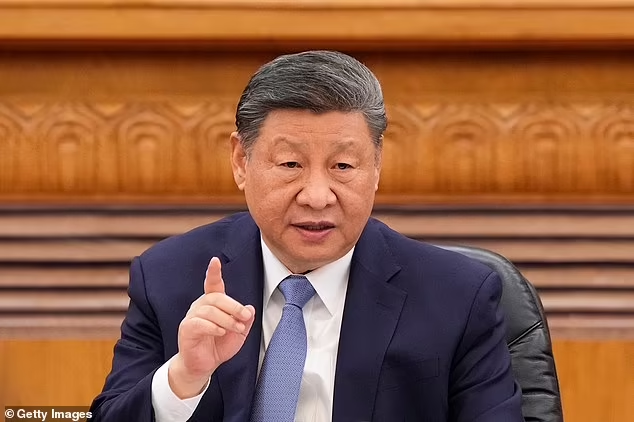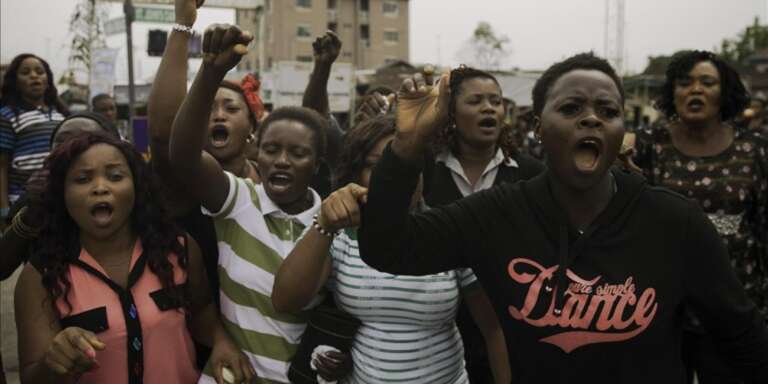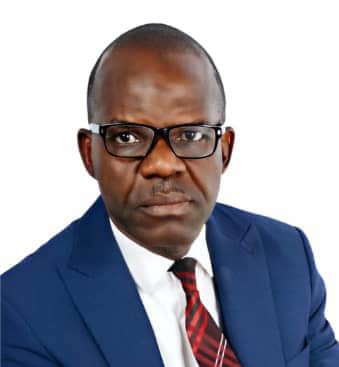By Dr. Tonye Clinton Jaja.
Since the year 1999, when Nigeria returned to democratic governance, apart from Godwin Kanu Agabi, SAN, Bola Ige, SAN and Adetokunbo Kayode, SAN, every other Attorney-General of the Federation (AGF) has been involved subjected to litigation for both their words and actions during their tenure!!!
This is one of the occupational hazards that any occupant of the office of AGF is exposed to.
As the cliches go, the possibility of litigation goes with the territory!!!
However, the purpose of this write-up is to sound a note of warning to the incumbent AGF, who is a neophyte considering that this is his first time holding public office in Nigeria.
There are three sets of persons that are likely to serve as the agent provocateur that goad and lures any AGF to face litigation arising from their line of duty.
The three sets of persons are as follows:
- politicians;
- civil servants, and
- the AGF’s personal desire to enrich themselves through embezzlement of public funds and other personal desires.
Politicians and civil (“evil”) servants whom any AGF must work with are the most dangerous species of humans. 99.9% of the lawsuits that are brought against any AGF are as a result of acting upon the directives, instructions and counsel of both politicians and civil servants!!!
In the case of politicians they often issue both ILLEGAL and UNETHICAL directives and instructions to the AGF which later boomerangs and results in litigation against the AGF.
In the case of civil servants they deploy two methods to entrap any AGF. The two methods are as follows:
- They inform the AGF that their illegal and unethical methods of doing things is the way that things have been done from time immemorial; and
- Even if the AGF initially refuses to succumb to the illegal and unethical suggestions of the said civil servants, they would frustrate the said AGF by refusal to implement the “righteous” directives of the said AGF.
A few weeks after the appointment of this incumbent AGF, I held two meetings with his good self at his office at the Federal Ministry of Justice.
The foregoing is based on first-hand experience of my working with three AGFs including the incumbent!!!
For example, a German international donor organisation had offered funding for training of staff of the Federal Ministry of Justice in an aspect of labour law. However, even though this was at no cost to the said Federal Ministry of Justice, and was happy endorsed by the AGF, up till today it has never happened because the civil servants saw no immediate financial benefits of the said training to themselves.
The duty of any AGF is akin to the duty of the historical “night soil men” to the extent that it is their duty to invent legal means to handle and dispose of the unpleasant and often illegal and unethical instructions of politicians and civil servants.
Before the advent of water flushing toilets, even up to the 1980s, the toilets were made of buckets which were evacuated at the end of the week by persons known as “night soil men”.
Below is a brief description of “night soil men” as follows:
A “night soil man” was a person, historically, whose job was to collect human waste, often euphemistically referred to as “night soil,” from privies and other receptacles, typically at night, and transport it for disposal or use as fertilizer.
Here’s a more detailed explanation:
Historical Context:
The term “night soil” is a historical euphemism for human excreta, and “night soil men” were the workers who removed this waste, usually at night to avoid public scrutiny.
Occupation :
Their work involved scooping waste into barrels or tanks on a wagon, emptying and cleaning privy vaults, and dealing with the often-unpleasant aspects of the job.
Social Significance :
Night soil men were often marginalized, and the work was considered unclean, leading to them being seen as outsiders.
Other Names :
They were sometimes also known as “gong farmers” or “nightmen”.
Modern Usage:
The term “night soil” is now largely seen as historical, with “fecal sludge” and “fecal sludge management” being more common terms used in discussions about sanitation in developing countries.”
Below are some litigation that were faces by previous AGFs as follows:
“On 13th April 2018 it was reported as follows:
“The Federal High Court in Abuja has ruled that a former Justice Minister and Attorney General of the Federation, Mohammed Adoke, cannot be held personally liable for his role in the $1.1 billion Malabu oil scandal.
In a judgement delivered by Justice Binta Nyako on Friday, the court agreed with the submissions of Mr Adoke that his involvement in the controversial deal which resulted in the sale of Nigeria’s oil well, OPL 245, was in compliance with his constitutional duties.
In a suit filed by the Economic and Financial Crimes Commission (EFCC) in December 2016, Mr Adoke, a former Minister of Petroleum Resources, Dan Etete, and other defendants were accused of fraudulent diversion of $1.1 billion in the controversial transaction.
In a reaction to that charge, however, Mr Adoke sued the Minister of Justice and Attorney-General of the Federation, Abubakar Malami, asking the court to declare his trial for the said transaction illegal.
Mr Adoke requested the court to determine whether by virtue of sections 5(1), 147(1), 148(1) and 150(1) of the 1999 Constitution a serving minister can perform the “executive power of federation vested on the president as directed by the president.”
Section 5(1) of the Constitution deals with the executive power of the president and how such powers can be exercise or delegated.
Section 147(1) and 148(1) outlines the duties and responsibilities of ministers and how those responsibilities are exercised in accordance with the wishes of the president while Section 150 (1) specifically deals with the responsibilities of the AGF.
Mr Adoke submitted that his entire involvement in the OPL 245 oil deal was “in full compliance to lawful directives given to him,” by former President Goodluck Jonathan.
He prayed the court to declare that he cannot be held personally liable for actions emanating from his obedience to lawful directives made by the president.”
In the year 2019, it was reported as follows:
“The immediate past Attorney General of the Federation and Minister of Justice, Mallam Abubakar Malami will on June 14, 2019 face the Disciplinary Panel the Legal Practitioners Privileges Committee over a prejudicial statement made against the detained former National Security Adviser, Colonel Sambo Dasuki.
The Hearing Notice obtained by PRNigeria which was signed by Patricia Orhomuru Esq, the Secretary Disciplinary Committee of the Legal Practitioners’ Privilege Committee has a reference No: PET/LPPC/23/2018 and dated May 16, 2019.
The Notice read in part: “Take notice that the above matter is fixed for hearing by the Disciplinary Committee of the Legal Practitioner Privileged Committee of the Office of Registrar Supreme Court of Nigeria Abuja on June 14, 2019 at 11.00 o’clock in the forenoon.
Malami is expected to face the panel for investigation in a statement credited to him in the Voice of America (VOA) Hausa Service on July 13, 2018 in which he was quoted that Dasuki would not be released despite all subsisting court orders for his release on bails.
In the audio recording of the interview he granted VOA, Malami had accused Dasuki of being responsible for the deaths of over 100,000 Nigerians during Jonathan’s era.
In the interview, Malami had said; “Remember, we are talking about a person who was instrumental to the deaths of over 100,000 people. Are you saying that the rights of one person are more important than that of 100,000 who lost their lives?”
Another example of a lawsuit against a former AGF is reported as follows:
“On February 23, 2022
Justice Kudirat Kekere-Ekun of the Supreme Court in a unanimous judgment delivered on December 10, 2021, affirmed a judgment of the Court of Appeal, Calabar division, which had earlier upheld a Federal High Court decision that barred the former Minister under late President Umaru Musa Yar’Adua’s administration from occupying public office in Nigeria.
A former Attorney-General of the Federation and Minister of Justice, Michael Aondoakaa, a Senior Advocate of Nigeria, has been barred from holding public office in the country for life.
Justice Kudirat Kekere-Ekun of the Supreme Court in a unanimous judgment delivered on December 10, 2021, affirmed a judgment of the Court of Appeal, Calabar division, which had earlier upheld a Federal High Court decision that barred the former Minister under late President Umaru Musa Yar’Adua’s administration from occupying public office in Nigeria.”
In the year February 2019, it was reported as follows:
“Bayo Ojo (SAN), former Attorney-General and Minister of Justice, on Thursday admitted receiving a “compensation” of $10million from former Petroleum Minister Dan Etete for his work as a legal adviser in the sale of OPL 245.
Ojo made the admission in a passage of his examination in Milan in the ongoing trial of former top officials of Royal Dutch Shell and Italian Agip-Eni over the payment of $1.092billion to Etete, the former Minister who awarded himself the lucrative OPL 245 by willing it to Malabu Oil and Gas, a company he had earlier set up using a false identity. He was also convicted of money laundering in an unrelated case in France in 2007.
Among the defendants in the matter are the CEO of the ‘Dog six-legged’, Claudio Descalzi; his predecessor, Paolo Scaroni; their accuser and former Manager of the Sahara area, Vincenzo Armanna; and also the same company and Shell.
Ojo admitted, in fact, that the worth of his compensation was $50million but he only received a part.”







 The full extent of the tariffs will be levied on nations worldwide starting at midnight, though Trump announced that the ones on China were increased on Tuesday.
The full extent of the tariffs will be levied on nations worldwide starting at midnight, though Trump announced that the ones on China were increased on Tuesday.



